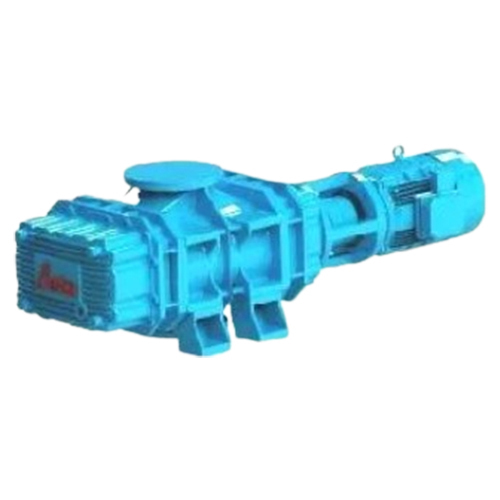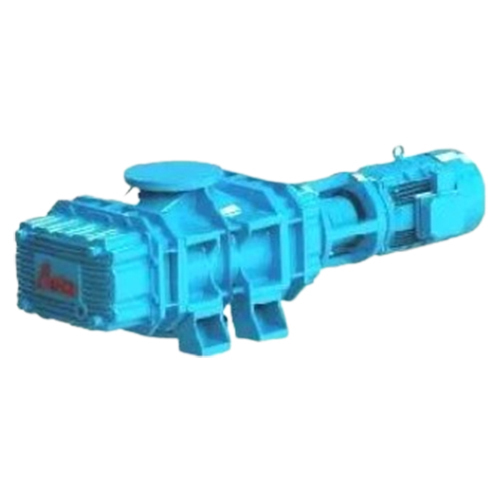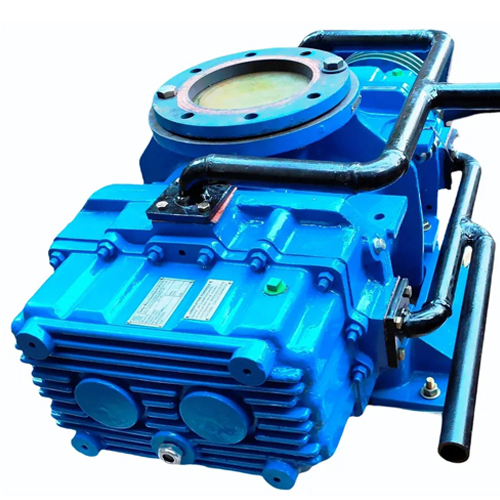Mechanical Vapour Recompressor
Product Details:
- Size Standard
- Usage Industrial
- Color Blue
- Product Type Mechanical Vapour Recompressor
- Equipment Type Mechanical Vapour Recompressor
- Material Steel
- Condition New
- Click to View more
Mechanical Vapour Recompressor Price And Quantity
- 1 Piece
Mechanical Vapour Recompressor Product Specifications
- Steel
- New
- Industrial
- Blue
- Mechanical Vapour Recompressor
- 1 Year
- Mechanical Vapour Recompressor
- Electric
- Standard
Mechanical Vapour Recompressor Trade Information
- 100 Piece Per Month
- 2 Week
- No
- Contact us for information regarding our sample policy
- All India
Product Description
A Mechanical Vapor Recompressor (MVR) is a key component in energy-efficient evaporation processes, commonly used in industries like chemical processing, food and beverage production, desalination, and wastewater treatment. The MVR system helps recover and recycle vapor energy, reducing the need for additional heat sources and lowering overall energy consumption in evaporation, distillation, or concentration processes.
How Mechanical Vapor Recompressor Works:
The primary function of an MVR system is to compress low-pressure vapor produced in evaporation or distillation operations and recompress it to a higher pressure and temperature. This higher-pressure vapor is then reused within the system as a heat source, allowing for the evaporation of additional liquid.
Heres a breakdown of the process:
-
Vapor Generation:
- In many industrial processes, vapor is generated as a byproduct of liquid evaporation. For example, in the evaporation of water or solvents from chemicals, this vapor typically exists at low pressure and temperature.
-
Vapor Compression:
- The MVR unit (typically a blower or compressor) takes the low-pressure vapor and compresses it. This compression increases both the pressure and temperature of the vapor. Compressing the vapor in this way requires mechanical energy, which is typically provided by an electric motor or sometimes a steam turbine.
-
Energy Recovery:
- The recompressed, high-pressure vapor is now at a temperature that is higher than the original vapor. This makes it suitable for use as heat in the evaporation system. By using the recompressed vapor, the system can reuse the thermal energy for further evaporation, reducing the need for external energy input like additional steam, electricity, or heating.
-
Reused Vapor for Evaporation:
- The recompressed vapor is returned to the evaporator or distillation column, where its latent heat is transferred to the liquid being processed, causing it to evaporate further. In many systems, this vapor is directly passed through heat exchangers to maximize energy recovery.
-
Continuous Loop:
- This process forms a closed-loop, where the vapor is continuously compressed and reused for evaporation, significantly increasing energy efficiency and reducing operational costs.
Key Components of an MVR System:
-
Compressor/Blower: The mechanical device (blower or compressor) that compresses the low-pressure vapor. It is the heart of the MVR system, responsible for raising the pressure of the vapor.
-
Heat Exchangers: These are used to transfer the recovered heat from the compressed vapor into the liquid being evaporated. They improve the heat transfer efficiency in the system.
-
Motors/Drives: The compressor or blower is typically powered by an electric motor or steam turbine that drives the compression process.
-
Condensers (optional): In some systems, condensers may be used to help recover any latent heat from the vapor before it's recompressed.
Applications of MVR Systems:
MVR technology is widely used in industries where evaporation or concentration processes are essential. Some of the key industries and applications include:
-
Chemical Industry:
- In processes like salt production, crystallization, and chemical concentration, MVR systems help recover heat from evaporating solvents or reactants, reducing the need for external heating systems.
-
Food and Beverage:
- Concentration of fruit juices, milk evaporation, and distillation all benefit from MVR systems. For example, in juice concentration, MVR systems can significantly reduce energy costs by reusing the steam generated during the evaporation process.
-
Pharmaceutical Industry:
- MVR systems are used in the concentration of active pharmaceutical ingredients (APIs) or in solvent recovery processes.
-
Desalination:
- In seawater desalination plants, MVR is used for multi-effect distillation (MED) or multi-stage flash (MSF) evaporation processes to efficiently reuse vapor and reduce energy consumption in the desalination process.
-
Wastewater Treatment:
- MVR systems are employed in wastewater treatment facilities to recover water from sludge or to concentrate waste streams, making the treatment process more energy-efficient.
Benefits of MVR Systems:
-
Energy Efficiency: By recycling the heat from vapor and reusing it for evaporation, MVR systems can cut energy consumption by as much as 40-60% compared to traditional methods that rely on external heat sources like boilers.
-
Lower Operating Costs: Reduced energy consumption directly translates into lower operational costs for industries, making MVR systems an attractive option for energy-intensive processes.
-
Environmentally Friendly: Energy savings result in fewer emissions from external heating sources (e.g., burning fossil fuels), which can reduce the environmental footprint of industrial processes.
-
Compact Design: MVR systems are often more compact and have a smaller physical footprint compared to traditional energy-intensive evaporation systems, which require large boilers and heating equipment.
-
Improved Process Control: MVR systems offer better control over temperature and pressure within the evaporation process, leading to more consistent product quality and more efficient operations.

Price:
- 50
- 100
- 200
- 250
- 500
- 1000+







